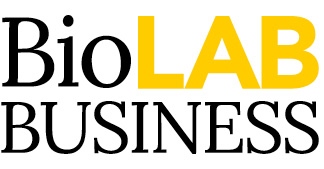Phycus Biotechnologies Inc. is developing alternatives to toxic cosmetics ingredients
By Sean Tarry
The cosmetics industry has come under a significant amount of criticism in recent years related to the collective negative impact that it has on the environment. From the use of excessive packaging and contributions to plastic pollution, to its unsustainable resource consumption, the manufacturers and purveyors of beauty care products pose a devastating effect on the future health of the planet. And, when considering the fact that most cosmetics products on the market contain ingredients that are derived from crude oil, the hazard that they represent increases significantly. That’s why, in an effort to create safer, more environmentally-friendly cosmetics ingredients, Phycus Biotechnologies Inc. developed an alternative to the harmful toxic contaminants.
Creating safer ingredients
A sustainable chemical manufacturing company, Phycus Biotechnologies Inc. uses fermentation and engineered microbes to produce chemicals for use within beauty and skin care products. One of the chemicals it produces, which poses the greatest potential, is Purolic Acid—a 100 per cent biobased glycolic acid that’s produced from a naturally derived sugar feedstock. The fermentation ensures the production of a biome-friendly, formaldehyde-free ingredient. It’s an innovation that has many within the cosmetics industry taking notice. And, it’s one that Vik Pandit, the company’s Co-Founder and CEO, says poses a range of benefits as an alternative to traditional petroleum-based ingredients.
“If something is sourced from petroleum, there’s a carbon cost associated with it and its conversion,” he explains. “So, there’s an environmental sustainability concern related to the use of glycolic acid. People are using these products on their faces and bodies, washing it off where it then ends up in wastewater treatment facilities and back into the environment to biodegrade, releasing net CO2 into the atmosphere. When you start with a sustainable feedstock which starts as CO2 in the atmosphere and it biodegrades, it closes the cycle. Petroleum-based ingredients can also contain traces of formaldehyde, which can be harmful to people, causing dermatitis and other allergic reactions. And, the ethical sourcing of the glycolic acid is also becoming a concern among consumers and brands. Knowing that the feedstock we use is not only good for the planet, but for the people producing it as well, is becoming increasingly important.”
How it works
To produce the Purolic Acid, the Phycus team leverages its proprietary microbe which is engineered to produce the glycolic acid. The glycolic acid is then fed a substrate that comes from certified sustainably-managed forests which then gets converted before cells are separated. At the end of the fermentation process, what’s left is a liquid that contains a crude glycolic acid. The liquid is then put through a purification process, during which impurities are removed, leaving a formaldehyde-free glycolic acid which is then concentrated to 70 per cent. At that point, the Purolic Acid is ready to be formulated by brands into every day skin care products.
Range of potential applications
Because glycolic acid is a building block molecule, there are a whole range of additional applications for the process and chemicals that Phycus produces. In fact, according to Pandit, the possibilities for potential applications seem limited only by the ability to scale up the technology and process.
“Using this process, we could make polyglycolic acid. And, by creating a larger molecule, it could be applied to packaging. It could also be used to create solvents for more sustainable paints for the automotive industry. And, the possible use of it in adhesives is really interesting because it presents a more sustainable option than the plastic that’s currently used. However, in order to realize the true potential of our process and biochemicals that we can create, we need to expand the market for glycolic acid, and drive the cost down by expanding our manufacturing capacity beyond what we currently have. There’s a lot of potential that our platform technology presents. We’re looking forward to continue growing and helping clients increase sustainability within their own supply chains.”
For more information about Phycus Biotechnologies Inc., visit www.phycusbio.com.
 BioLab Business Magazine Together, we reach farther into the Canadian Science community
BioLab Business Magazine Together, we reach farther into the Canadian Science community





